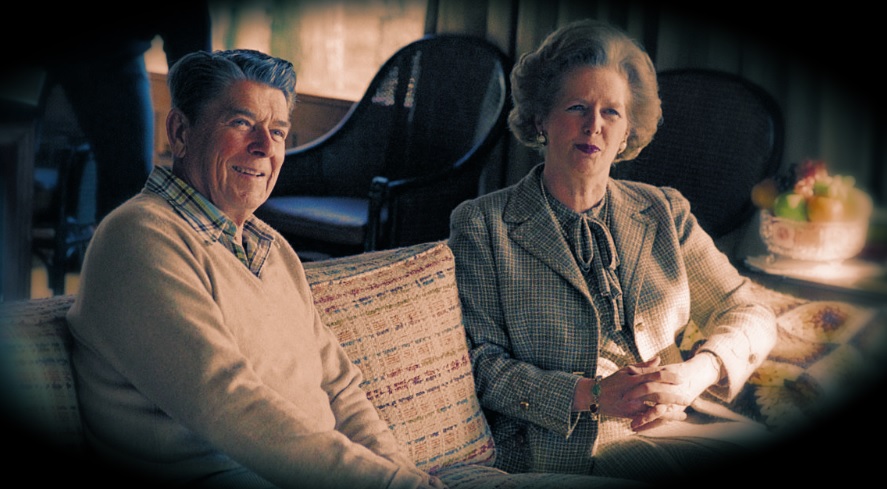This is the second blow to the conservative revolution and this will probably be a fatal one. Just as strongly as the pandemic had challenged the economic credo of the four decades opened by Margaret Thatcher, the international outrage over the murder of George Floyd has now disrupted the political alliance on which the last forty years were based.
We may one day regret it, but we are indeed witnessing a change of an era, for the Iron Lady did not just bury Keynes and put Adam Smith back in the spotlight. Followed by that of Ronald Reagan, her first election also heralded a backlash against the 1960s, against the emancipation of women, the affirmation of the homosexual liberation movement and the strength with which black Americans suddenly demanded their civil rights and true equality with the white majority.
These social aspirations of the former slaves had frightened the lowest income white people, who feared that there would be no one below them in the social ladder. As deep as the fear of the sexual revolution had been, this anxiety had brought them closer to the religious right wing and had led them to form a political majority in which the Democrats had lost entire sections of the working and middle classes. Money had finally found there the political basis necessary to its ambition to regain control over the public powers and over the consensus of the post-war period.
Threatened by the baby-boom generation, an old order had, in a nutshell, stood up against the protest that was roaring everywhere in the 1960s, and, what are we witnessing today?
Well, forty years after that conservative revolution won the world over through the collapse of communism, the entire legacy of Ronald Reagan and Margaret Thatcher seems to be fading away more and more. First, there was the financial crisis of 2008, which shook confidence in the invisible hand of the market. It was at that time that the denunciation of inequality and fiscal iniquity became a central theme in the political debate. Then there was a spectacular rise in protests against the retreat of the State and public services, which benefited the new extreme right wingers, the new extreme left wingers and the movements such as the Yellow Vests or Five Stars which were straddling both extremes.
In the United States and Britain, where Ronnie and Maggie had triumphed, the least well-to-do of the “native” British and Americans discovered that they had lost much in the rise of the Conservative revolution. With the Brexit and the election of Donald Trump, it was both European unity and free trade that they rejected as the fruits of what is wrongly called “liberalism”, and then came the great European turning point.
Even before the pandemic accelerated the movement, the European Union began to understand that it needed to invest together in common defence and industrial policies in order to meet its security needs and industrial competition from the United States and China. The election of Donald Trump and China’s technological progress had broken the Union’s great taboos, but the coronavirus has finally changed everything.
From one day to the next, we had to borrow to address the consequences of this catastrophe. It was necessary to do so together, so that the differences in rates between Member States not shoot up and the Union not fall apart. It was necessary to borrow in order to invest and, by burying Adam Smith and bringing Keynes back into the limelight, by doing exactly the opposite of what had been done forty years ago, the Union is taking on all the features of a political union.
The British Conservatives see no other salvation than the launching of major projects, by the State of course. The British right-wing takes up the election announcements of Donald Trump, who was also elected on a promise to invest in the modernisation of infrastructure. Reagan and Thatcher are disavowed by a necessity that is now the law, and what is happening at the same time?
What is happening is that, in an international outcry so reminiscent of the 1960s, the persistence of racial discrimination in the United States is bringing to the streets a new political generation that was already endorsing gender equality, building up around the battle against inequality and in favour of the need for State, a State that is an arbiter, redistributor and guarantor of the future.
Everything is happening as if 2020 had wiped out 1980, but the question is : for whose benefit?
Everything suggests it will benefit the new centres: the multilateralist, Keynesian, European, ecological and, of course, democratic centres. That would be logical and the signs of exhaustion on the part of Mr Trump, Mr Putin, Mr Salvini, Mr Kaczynski or even Mr Orbán give cause for hope, but we cannot rule out another hypothesis.
In the wake of the sinking of the conservative revolution, the national-conservatives, no longer Thatcherite and free-traders but nationalist, protectionist and xenophobic, can still win the day and inflame international rivalries. Everything will depend on the clear-sightedness of the centres, on the political maturity that the Greens will or will not demonstrate and on the three key figures who, at this decisive moment, are Joe Biden, Angela Merkel and Emmanuel Macron.



